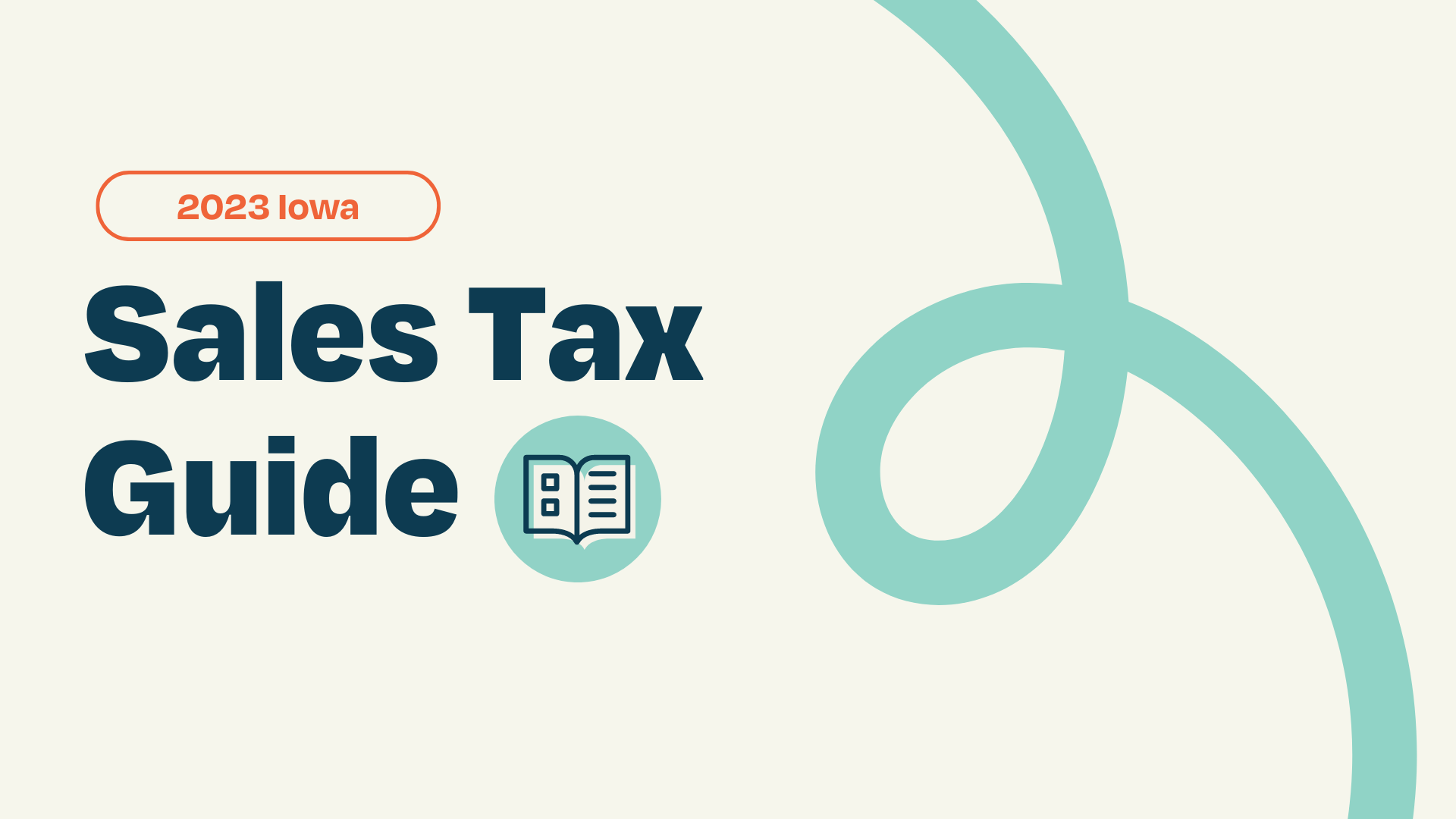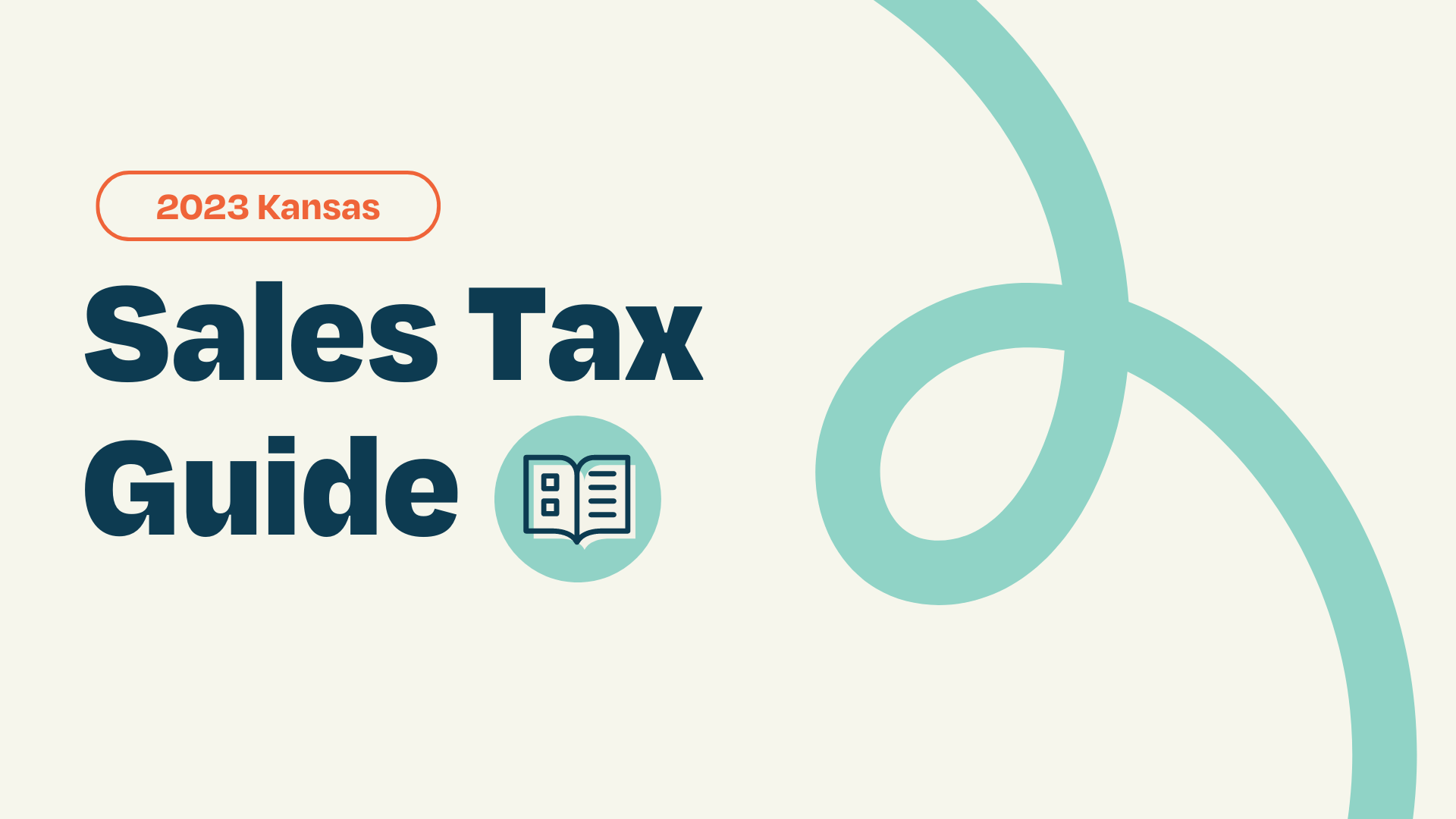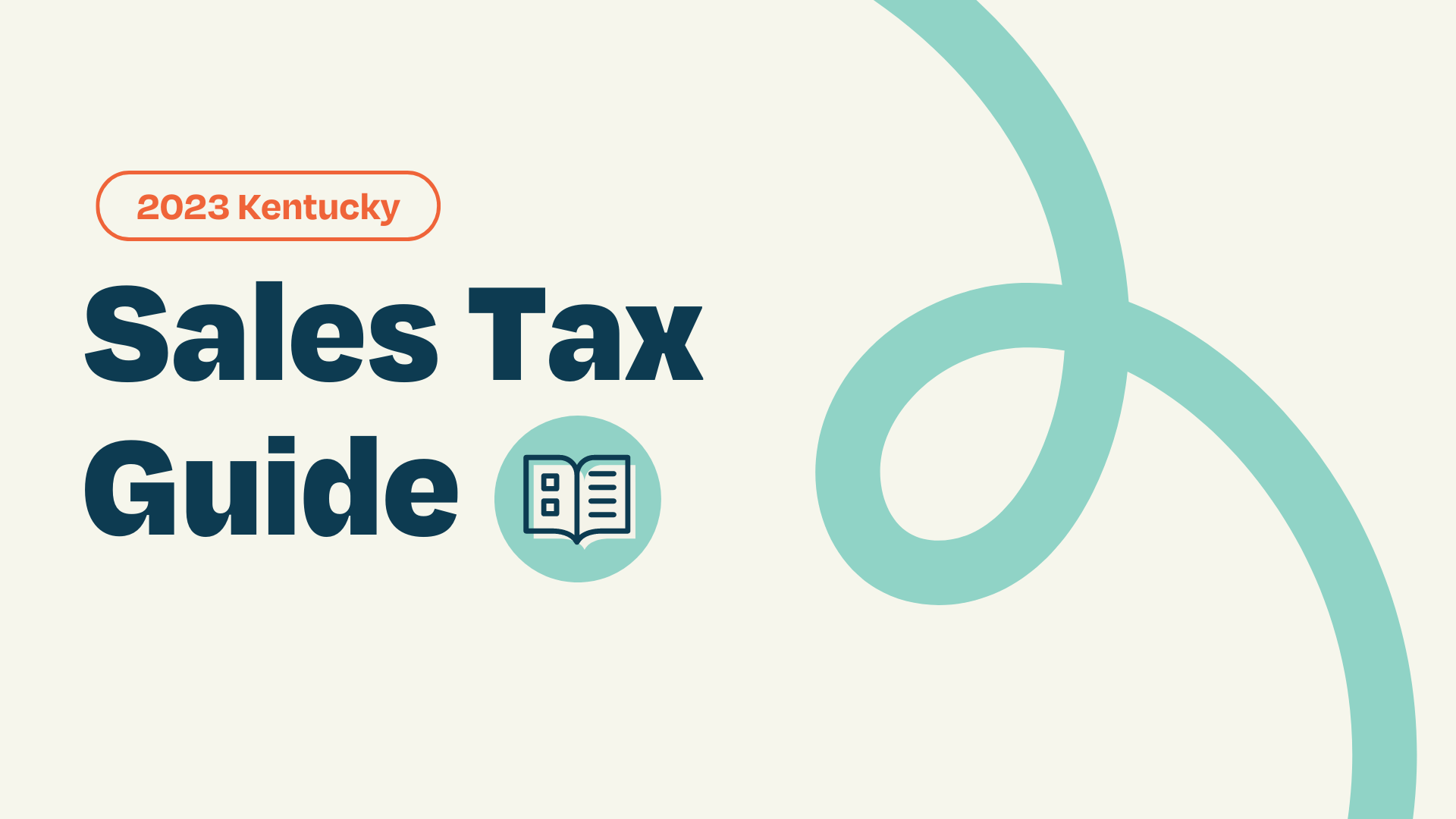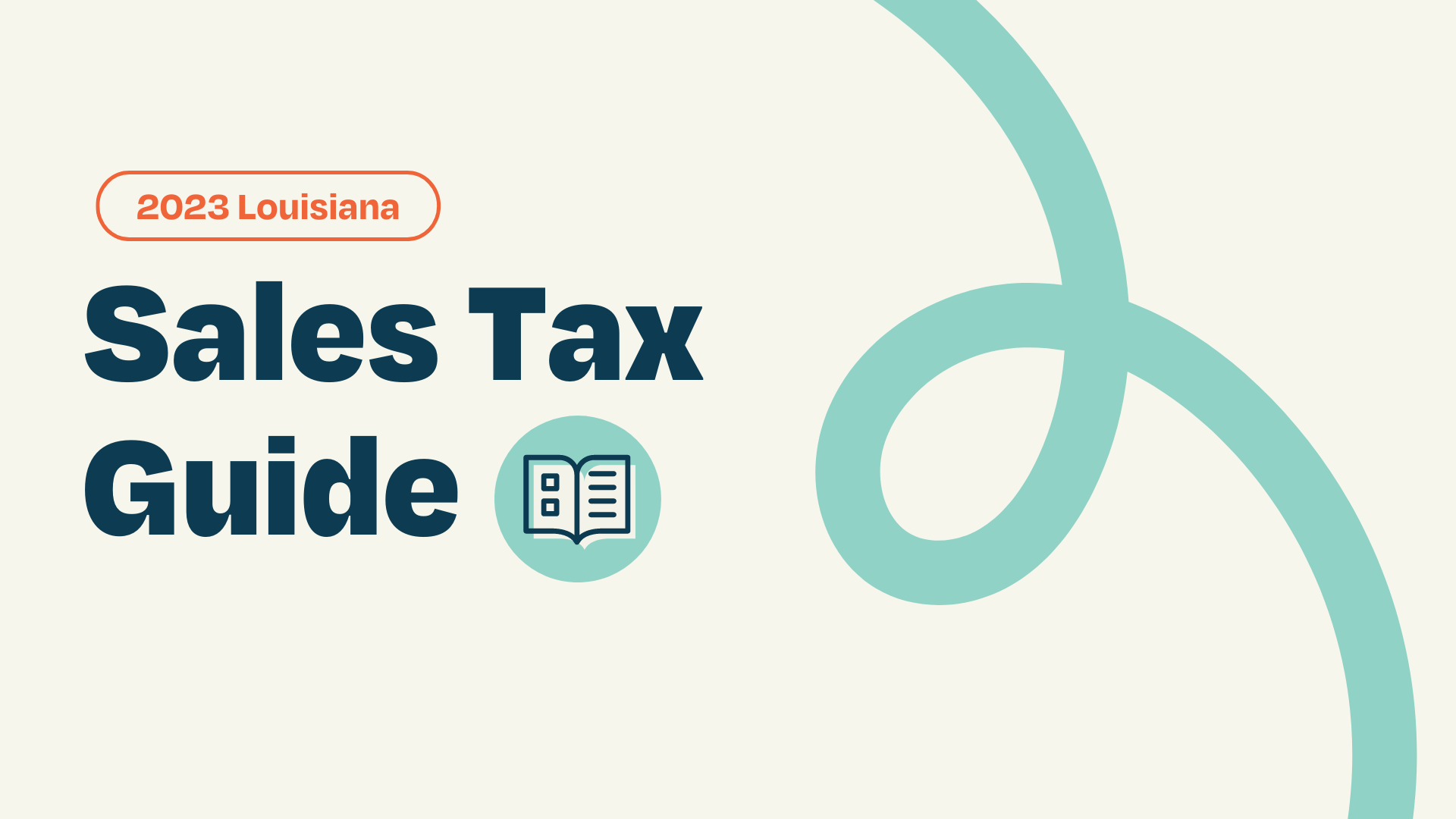1 min read
Kansas 2023 Sales Tax Guide
Kansas Sales Tax in a Word Welcome to the Accountingprose Kansas Sales Tax Guide, your go-to resource for navigating the ins and outs of sales tax...

Welcome to the ultimate guide for all things Iowa Sales Tax! In this comprehensive blog, we'll wade through the cornfields of tax regulations and uncover the secrets to successfully navigating this essential aspect of doing business in the Hawkeye State. 🌽💼
From understanding nexus and registration to exemptions and filing, we've got you covered. So, buckle up and join us as we embark on a whirlwind tour of Iowa sales tax, leaving no stone unturned and ensuring you have all the knowledge you need to make your business flourish in this beautiful, bountiful state!
|
Table of Contents |
The Iowa Department of Revenue is the agency responsible for managing sales tax in the state of Iowa. They oversee the collection, administration, and enforcement of sales tax regulations.
Here's how to reach the Iowa Department of Revenue:
Address: Hoover State Office Building, 1305 E. Walnut St., Des Moines, IA 50319
Phone: (800) 367-3388 (In-state) or (515) 281-3114 (Out-of-state)
Email: idr@iowa.gov
Website: https://tax.iowa.gov/
For any questions or concerns related to sales tax in Iowa, you can reach out to the Iowa Department of Revenue through the provided contact channels. They're available to guide and assist you in navigating the sales tax landscape in the state. And, if you are ready to work with Iowa sales tax experts, get in touch with us here.
To successfully navigate the world of sales tax in Iowa, you first need to determine if your business has a nexus in the state. But what exactly is a nexus, and how do you know if you have one? Let's dive in and explore the concept of sales tax nexus in Iowa, and the various ways your business might establish it.
Sales tax nexus is a legal term that describes the connection between a business and a state. When a business has nexus in Iowa, it's required to collect and remit sales tax on applicable transactions within the state. There are several ways a business can establish nexus in Iowa, including physical presence, economic activity, affiliate relationships, click-through referrals, and marketplace facilitation.
Physical nexus is established when your business has a tangible presence in Iowa. This can include owning or leasing property (such as an office, warehouse, or storefront), having employees in the state, or conducting in-state services, like installation or repairs. If your business has a physical connection with Iowa, you likely have a sales tax nexus in the state.
Economic nexus is determined by the amount of sales revenue or the number of transactions your business generates within Iowa. As of January 1, 2019, if your business has at least $100,000 in annual sales or 200 transactions with Iowa customers, you are considered to have economic nexus in the state and are required to collect and remit sales tax.
Affiliate nexus occurs when your business has a relationship with an in-state entity that helps you generate sales. Examples include having a subsidiary in Iowa, using an in-state sales representative, or partnering with an in-state company that promotes your products. If your business has affiliate relationships in Iowa, you may have sales tax nexus in the state.
Click-through nexus is established when an Iowa-based website or online platform refers customers to your business through a unique link, and you compensate the referrer for the sales generated. If your business generates at least $10,000 in annual sales through click-through referrals from Iowa websites, you have click-through nexus and must collect and remit sales tax.
Marketplace nexus occurs when your business sells products or services through a third-party online marketplace like Amazon, eBay, or Etsy that has a presence in Iowa. Under Iowa law, marketplace facilitators are required to collect and remit sales tax on behalf of sellers for sales made through their platform. This means that if your business uses an online marketplace with nexus in Iowa, the marketplace will generally take care of sales tax obligations for you.
So, you've determined that your business has nexus in the beautiful Hawkeye State, and now you're ready to take the next step: registering for sales tax in Iowa. Fear not, intrepid entrepreneur! We're here to guide you through the process and help you get your Iowa sales tax license with ease.
To register for a sales tax account in Iowa, you can do either of the following:
This is the fastest and easiest way to register. You will need to have the following information on hand:
Your business name, legal name, and mailing address
Your Federal Employer Identification Number (FEIN)
Your NAICS code
The names, addresses, and Social Security numbers of all managing owners, partners, or officers
Your contact email address and phone number
Go to the GovConnectIowa website.
Click on the "Businesses" tab.
Click on the "Business Tax Registration" link.
Click on the "Sales Tax Permit" link.
Enter your business information.
Enter your contact information.
Enter your tax information.
Review your application and click on the "Submit" button.
You will receive a confirmation email with your permit number. You can begin collecting sales tax immediately.
If you do not have access to the internet, you can download a paper application from the Iowa Department of Revenue website. You will need to mail or fax the completed application to the Department.
Download the Iowa Business Tax Permit Registration form (78-005) from the Iowa Department of Revenue website.
Complete the form and mail it to the following address:
Iowa Department of Revenue
Business Tax Registration
PO Box 9181
Des Moines, IA 50306-9181
You will receive a confirmation letter with your permit number. You can begin collecting sales tax immediately.
Once you have registered for a sales tax account, you will be assigned a 9-digit permit number. You will need to use this permit number to collect sales tax on your sales in Iowa. You will also need to file sales tax returns with the Department on a quarterly basis.
Good news! There is no fee for registering for an Iowa sales tax license. That's right – it's completely free to sign up and start collecting sales tax in Iowa.
Yes, you do need a Federal Tax ID Number (also known as an Employer Identification Number or EIN) to register for an Iowa sales tax license. The EIN is used by the Iowa Department of Revenue to identify your business for tax purposes. If you don't already have one, you can obtain an EIN from the Internal Revenue Service (IRS) by visiting their website at https://www.irs.gov/.
In addition to registering with the Iowa Department of Revenue for sales tax purposes, you may need to register your business with other state agencies, depending on the nature of your operations. Some examples include:
Iowa Secretary of State: If your business is structured as a corporation, limited liability company (LLC), or partnership, you'll need to register with the Iowa Secretary of State.
Iowa Workforce Development: If you have employees in Iowa, you'll need to register with Iowa Workforce Development for unemployment insurance and workers' compensation coverage.
Iowa Alcoholic Beverages Division: If you sell alcoholic beverages in Iowa, you'll need to register with the Iowa Alcoholic Beverages Division for the appropriate licenses and permits.
Be sure to research and familiarize yourself with any additional registration requirements that may apply to your specific industry or business type.
Now that you're registered and ready to collect sales tax in Iowa, it's essential to understand the ins and outs of how to properly do so. In this section, we'll explore whether Iowa is an origin or destination sales tax state, which sales are subject to tax, exemptions, and how to handle exempt customers. Let's dive in and unravel the mysteries of Iowa sales tax!
Iowa is a destination-based sales tax state, which means that the sales tax rate is determined by the location of the buyer, not the seller. When making sales to customers in Iowa, you'll need to apply the appropriate sales tax rate for the buyer's location, which includes both the state and any local sales tax rates. To accurately determine the correct rate, you can use the Iowa Department of Revenue's tax rate lookup tool.
In Iowa, sales tax applies to the sale, lease, or rental of tangible personal property, as well as certain services. Examples of taxable items include clothing, furniture, electronics, and prepared food. Some common taxable services include landscaping, janitorial services, and home improvement services.
In addition to tangible personal property and services, Iowa sales tax also applies to:
Admission fees for amusement, entertainment, and recreational activities
Utilities such as electricity, natural gas, and water
Telecommunication services, including telephone and internet services
As of 2018, Software as a Service (SaaS) is subject to sales tax in Iowa. This means that if you provide SaaS to customers located in the state, you'll need to collect and remit sales tax on those transactions. The tax treatment of SaaS falls under the broader category of "specified digital products," which also includes digital audio works, digital audiovisual works, and digital books.
Iowa offers several sales tax exemptions for specific items and services. Some common exemptions include:
Prescription drugs and medical devices
Groceries and unprepared food items
Agricultural supplies, equipment, and machinery
Manufacturing machinery and equipment
Educational materials and services
Newspapers and periodicals
Additionally, certain transactions are exempt from sales tax, such as:
Sales to nonprofit organizations for their exclusive use
Sales to the federal government and its agencies
Sales of property or services used exclusively for agricultural production
Certain organizations and individuals are eligible for sales tax exemptions in Iowa, including:
Nonprofit organizations, such as churches and charities
Government agencies
Schools and educational institutions
Resale businesses with a valid sales tax permit
Qualified contractors purchasing materials for certain construction projects
If your customer is exempt from sales tax in Iowa, you'll need to obtain a completed exemption certificate from them. This certificate should include the customer's name, address, and reason for the exemption, as well as their sales tax permit number if they are a resale business.
Keep the exemption certificate on file, as you may be required to provide it to the Iowa Department of Revenue if your sales tax collection and remittance are audited. It's a good idea to regularly review and update your exemption certificate records to ensure they remain accurate and up-to-date.
If you lose an exemption certificate, it's important to contact the customer who provided it and request a new copy. Maintaining accurate records of exemption certificates is essential, as the Iowa Department of Revenue may require you to produce them during an audit. Failure to provide valid exemption certificates could result in fines, penalties, or the requirement to pay uncollected sales tax on exempt transactions.
In the event of a lost exemption certificate, reach out to the customer as soon as possible to request a replacement. Establishing a system for organizing your documents will keep this from happening again. If you work with us, we make sure to keep everything stored safely in a shared Dropbox account.
Easy peasy!
Navigating the world of sales tax can be a daunting task, but fear not! We're here to guide you through the process of filing and paying sales taxes in Iowa. In this section, we'll discuss due dates, what to do if a filing date falls on a weekend or holiday, how to file your sales tax return, penalties, discounts, and sales tax holidays. Let's dive in and conquer the sales tax beast together!
In Iowa, sales tax returns and payments are generally due on a monthly, quarterly, or annual basis, depending on the amount of sales tax you collect. Here's a breakdown of the filing frequency requirements:
Monthly: If your sales tax liability is more than 6,000 per year , you must file monthly returns.
Quarterly: If your sales tax liability is between $120 and $6000 per year, you must file quarterly returns.
Annually: If your sales tax liability is less than $120 per year, you must file annual returns.
The due dates for filing and paying your sales tax in Iowa are as follows:
Monthly: Returns and payments are due on the last day of the month following the reporting period. For example, a return for January sales would be due February 28th.
Quarterly: Returns and payments are due on the last day of the month following the reporting period. For example, a return for Q1 (January - March) would be due April 30th.
Annually: Returns and payments are due on January 31st of the following year.
If an Iowa sales tax filing date falls on a weekend or holiday, the due date is automatically extended to the next business day.
You can file your Iowa sales tax return electronically through the Iowa Department of Revenue's eFile & Pay system. This online platform allows you to submit your sales tax return and make payments easily and securely. You'll need your tax permit number, password, and the necessary sales tax information to complete the process
If you fail to file your sales tax return by the due date, a late filing penalty of 10% of the tax due or $50, whichever is greater, will be assessed.
If you fail to file a sales tax return for a period in which you were required to do so, the Iowa Department of Revenue may estimate the amount of tax due and assess a penalty of 75% of the tax due.
In addition to penalties for late or missed filings, interest will be charged on any unpaid tax. Interest accrues daily and is calculated using the current federal short-term rate plus 4%.
Iowa allows a sales tax discount for timely filing and payment. If you file and pay your sales tax on time, you can claim a discount of 0.5% of the tax due. However, the discount cannot exceed $1,500 per year.
Iowa has an annual sales tax holiday, typically held on the first Friday and Saturday in August. During this time, certain clothing and footwear items priced under $100 are exempt from sales tax. This event provides a prime opportunity for back-to-school shopping and encourages consumers to support local retailers.
Saying on top of your sales tax obligations in Iowa involves understanding filing frequencies, due dates, and penalties, as well as taking advantage of discounts and sales tax holidays. By staying organized and paying close attention to deadlines, you can ensure a smooth sales tax filing experience and keep your focus on what matters most: growing your business!
Filing sales tax returns can be a complex process, but with the right strategies in place, you can avoid common pitfalls. Here are five top tips to help you steer clear of mistakes when filing your Iowa sales tax returns:
Maintaining detailed and accurate records of all your sales transactions is crucial. This includes information about taxable and exempt sales, as well as any sales tax collected. Good record-keeping practices will make it easier for you to complete your sales tax return and reduce the risk of errors. Consider using accounting software to help you stay organized and ensure that your records are up to date.
Sales tax rates can change, and it's essential to stay informed about current rates in the areas where you do business. Regularly verify the sales tax rates for your customers' locations using the Iowa Department of Revenue's tax rate lookup tool. This will help you avoid charging incorrect rates and minimize the need for adjustments or refunds.
If you have customers who are exempt from sales tax, it's important to obtain and maintain their exemption certificates. Keep these documents on file and ensure they are up to date, as you may be required to provide them during an audit. Failure to do so could result in fines, penalties, or the need to pay uncollected sales tax on exempt transactions.
Timely filing and payment of your sales tax returns can help you avoid late filing penalties and interest charges. Mark the due dates on your calendar and set reminders to ensure you don't miss any deadlines. Remember that Iowa offers a sales tax discount for timely filing and payment, so staying on top of your obligations can also save you money.
Before submitting your sales tax return, take the time to double-check your figures and calculations for accuracy. This can help you catch any mistakes that could lead to an incorrect return, penalties, or interest charges. Reconcile your sales tax collected with the sales tax due on your return, and be sure to account for any exemptions or discounts.
By following these tips, you can minimize the risk of common mistakes and make the process of filing your Iowa sales tax returns smoother and more efficient. Remember, staying organized and vigilant is key to ensuring your business remains compliant with sales tax laws and regulations.
We hope this Iowa sales tax guide has been a helpful companion on your journey through the often intricate world of sales tax compliance. By understanding the ins and outs of filing and paying sales taxes in Iowa, you'll be better equipped to navigate the process with confidence and ease.
Keep in mind the importance of accurate record-keeping, verifying sales tax rates, maintaining exemption certificates, and filing on time. And don't forget to use our tips for avoiding common mistakes, as well as exploring the additional questions we've suggested to further your knowledge.
Remember, at Accountingprose, we're committed to your success and we're here to support you every step of the way. If you need a guiding hand or have any questions about Iowa sales tax, don't hesitate to reach out. We're ready to help you conquer the sales tax maze and get back to focusing on what you do best—growing your business. Here's to making the most of your journey through the Hawkeye State's sales tax landscape! 🌟🌽
|
Ready to work with an Iowa sales tax expert? We've love to work with you! |
|
Alaska Sales Tax Guide (N/A) |
||||
|
Montana Sales Tax Guide (NA) |
||||
|
Oregon Sales Tax Guide (N/A) |
||||
|
Delaware Sales Tax Guide (N/A) |
||||
|
New Hampshire Sales Tax Guide (NA) |
||||
And don't forget to check out our blog about Economic Nexus, which serves as an invaluable resource for businesses who have sales that are subject to sales tax.
This blog is for informational purposes only and the information is accurate as of 2023-06-19. If you want legal advice on sales tax law for your business, please contact a State and Local Tax (SALT) professional. Keep in mind that sales tax regulations and laws are subject to change at any time. While we strive to keep our blog current, this blog possibly may be out of date by the time you review it.

1 min read
Kansas Sales Tax in a Word Welcome to the Accountingprose Kansas Sales Tax Guide, your go-to resource for navigating the ins and outs of sales tax...

1 min read
Kentucky Sales Tax in a Word Welcome to the fabulous world of Kentucky sales tax, brought to you by your friendly neighborhood accounting experts at...

Louisiana Sales Tax in a Word Welcome aboard, fellow tax adventurers! Embark with us on a thrilling expedition through the mystifying bayous of...